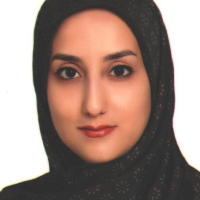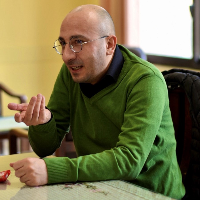The Narrative of Downfall: Justice Seeking as Rebellion in HatamiKia's cinema
One of the main axes of the Islamic Revolution’s discourse, is the achievement of justice, and Ibrahim HatamiKia, as a film maker emerging from this discourse, has always presented social justice as his main concern. This research has also been done to interpret HatamiKia's movies on the issue of justice relying on the concepts arising from the theory of John Rawls, Jasso and Wagner. In this way, this research is in line with Rawls's belief that a just society is considered to have just institutions and the people of that society also think that the institutions act justly; Also, the people of that society have the same perception of justice. The second point is that all people have an equal right to achieve the basic goods that society has provided for them. Good things such as income, wealth, prosperity, health, political positions.
This research was analyzed through the method of narrative analysis with a structuralist approach. In this approach, we are faced with the question of how to organize the events and actions of the story. The theories of Chatman and Labov were combined together to analyze the story and the discourse of chosen movies. The theory of Labov was used to extract narrative transfer structure in Chatman model. Three movies of The Glass Agency (1996), Low Heights (2001), and Exodus (2019) were selected by purposive sampling method.
In the three reviewed movies, three common characteristics are considered for rewardees. The first feature is that in all three movies, the class from which the justice seekers came from is the lower class of society and belongs to small towns and non-metropolitan cities. The second characteristic is the strong influence and leadership of these characters in the story process. The third and most important feature is that the rewardees of each story are somehow connected to the issue of the Iran-Iraq war. Therefore, the justice seekers in these three films belong to the lower class, have the personality of leaders and war fighters. In all three movies, the rewardees are clearly looking for economic justice. In the film "Glass Agency" the rewardee needs money to cover the cost of travel and treatment, in the film "The Low Height", the rewardee cannot support his living expenses due to the lack of jobs and facilities, and in the film "Exodus", the farmers' agricultural products is gone and they are looking for compensation to compensate for their loss; But as soon as the act of justice takes place and the rewardees tries to regain his lost right, economic justice takes a turn to political justice from the point of view of the Allocators.
The findings suggest that the discourse of these three movies is represent the Iranian society as an unjust society in which all the economic demands of the justice seekers are viewed with a political-security lens. Therefore, the relevant institutions have been used to re-establish security. Allocating institutions interpret the process of seeking justice with the fear of the foreign enemy and the internal enemy. From this point of view, justice-seeking action does not bring an end to the downfall for justice-seekers. The death of the rewardee and the failure of the realization of justice, the fall of the actors and the ambiguity in the realization of justice and the failure of the journey are examples of this downfall.
-
"When he left": the narrative of the lives of abandoned women
Zohreh Bayati Komitaki *, , Sayed Ali Hashemian Far, Hamid Dehghani
Pazuhesname - ye Zanan, -
Narrating the Lived Experience of Family Counseling in the Perceptive World of Women
Rehane Batani Noushabadi, Behjat Yazdakhasi *, Ehsan Aghababai, Maryam Fatehizadeh
Journal of Social Sciences, -
The mental image of the cinema’s audience of the urban space is represented
*
Journal of Urban Studies on Space and Place,



